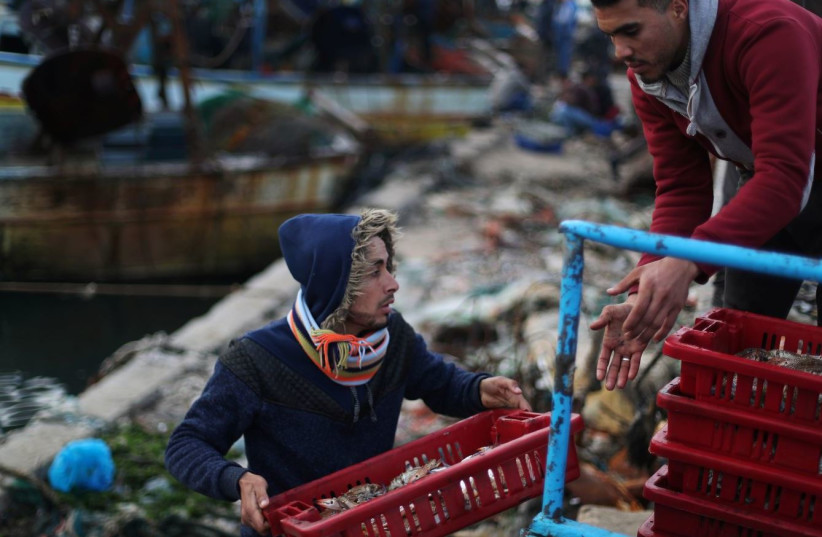Marooned for a decade by engine failure, Palestinian fisherman Falah Abu Reyala will finally be able to return to sea with a new outboard motor for his boat after Israel eased curbs on the supply of parts to Gaza it feared could be used to make weapons.
After the Islamist group Hamas seized control of Gaza in 2007, Israel and Egypt clamped down on its borders, citing security concerns. The measures deepened poverty in the cramped enclave, over two-thirds of whose residents depend on aid.
But the curbs have been under review for months given arguments that improving the Gaza economy helps stave off conflict.
In November, Israel allowed in enough fiberglass for the repair of 10 fishing boats and, last week, permitted the import of 12 outboard engines, said the United Nations.
Fishermen's goods
All the goods are paid for by the fisherman. Israel had previously barred their entry based on concern they could prove "dual use" - helping Hamas fighters with their military build-up.

"I received an engine I have waited 10 years to get," said Abu Reyala, a father of seven, gazing at the newly rigged Benzine-powered propeller.
"Now I will be able to resume my work."
Repairs are taking place at an -supervised workshop on the beach, near the so-called "Boat Graveyard" where dozens of rusty vessels have been piled up, abandoned after breakdowns.
"We are very happy about the entry of these materials and we hope it continues so that all boats can be repaired," said Manal Al-Najar, project coordinator on behalf of the United Nations.
"It will help fishermen pursue their work and help hundreds of families who work in the fishing sector to secure income."
Some 700 fishing boats still required repairs, she said.
COGAT, an Israeli coordination unit, confirmed it had allowed the first entry in 15 years of dual-use materials such as epoxy glue, polyester, fiberglass and boat engines.
“This process was carried out as part of an effort COGAT is making to bolster the fishing industry in the Gaza Strip," it said in a written response to Reuters.
The current allotment will enable the repair of 35 fishing boats - with more possible "if the newly crafted mechanism meets the agreed security and economic parameters," COGAT said.
Even if seaworthy, Gaza's fishing boats are limited to waters delineated by Israel and Egypt, reducing the size of the catch and in some cases discouraging them from even going out.
